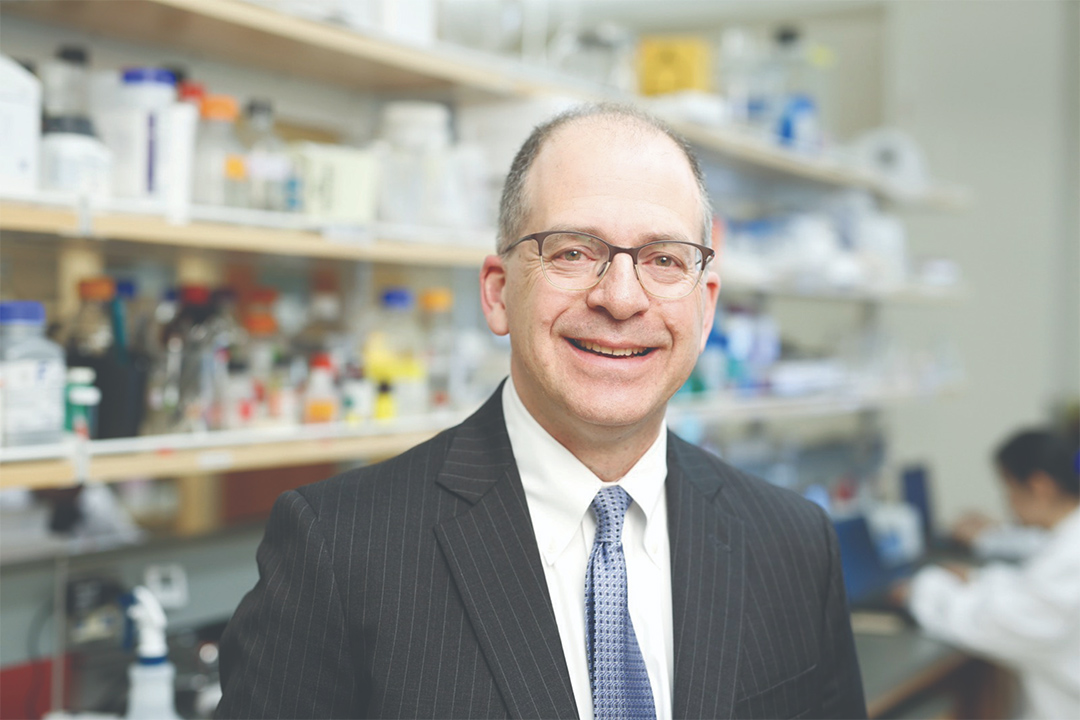
Michael Levin and the race to reverse MS neurodegeneration
Dr Michael Levin is a neuroscientist unravelling the mysteries of nerve degeneration in Multiple Sclerosis patients.
By Researchers Under the ScopeListen to all episodes of Researchers Under the Scope podcast.
Subscribe to the podcast on Spotify or Apple Podcasts
He's also Saskatchewan's inaugural MS Clinical Research Chair. Levin says his interest in the disease was sparked by the first MS patients he met in New York City.
"Back then, people would come in for these high dose steroids on a Friday, Saturday, Sunday. It was a long weekend,” he said.
"They were younger than the typical neurology patient,” said Levin. "They were the middle of their lives and either they were working full time or they were busy moms."
Levin saw the disease as a promising new area for science.
As the decades rolled by, therapies for MS became more widely available, with increasingly effective cocktails of anti-inflammatory drugs.
"In my lifetime, there's been a dramatic change in how we treat MS," said Levin. "There's a lot of hope when people come into the clinic."
But after a number of years, he said some patients do relapse.
Some notice cognitive gaps. Others notice a foot dragging during a walk, decreasing endurance during sports, or a host of other signs of long-term MS nerve damage.
Those relapses are what fascinate Levin. His team tracks the neurodegenerative phase of the disease in a group of mice.
"Instead of being in the nucleus, actually in people with MS [a key protein] gets stuck in the cytoplasm," said Levin.
"That nerve cell can no longer function normally, and it begins to slowly die."
In this episode, Levin discusses the lab-engineered peptide that's persuaded that heterogeneous nuclear ribonuclear protein A1 (hnRNP A1) protein to reshape itself, eventually helping it to slide back into its original position.
The trouble is, peptides aren't easy to deliver. But — existing drugs are.
Now, Levin and his laboratory are searching for a pharmaceutical which can mimic the three-dimensional shape change patients need in their misplaced hnRNP A1 cells.
Finding the right drug match is a challenge, but Levin said the patients he sees every week in his clinical practice urge him to keep at it.
"It's this kind of slow degenerative kind of nickel and diming of people's function that we would really like to nip in the bud," said Levin.
"This is where we really are using some real high-tech artificial intelligence and bioinformatics," said Levin, noting the Canadian Light Source is also involved.
With support from federal funding agencies and the University of Saskatchewan, Levin is pushing forward.
He envisions a shortlist of drugs in a few years, with human trials of therapy his team develops by the mid-to-late-2020s.
“It’s a really, really exciting time here in the province,” Levin said.
Hear how this could be a game-changer for MS patients across Saskatchewan and the world, in this episode.
